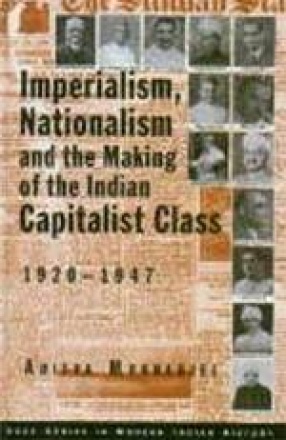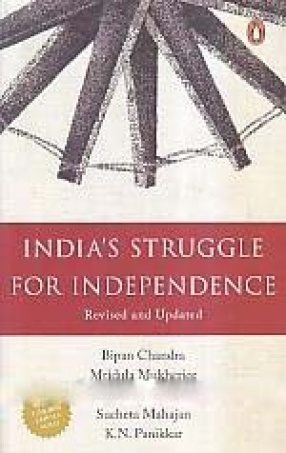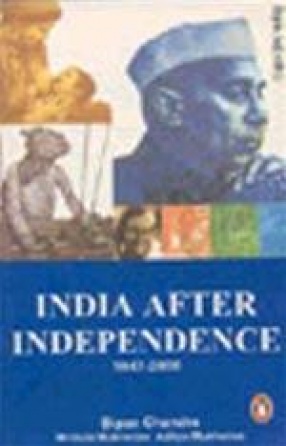This pioneering book analyzes the evolution of Indian capitalists as a mature, politically conscious, all India class, and simultaneously provides a comprehensive economic history of colonial India in the first half of the twentieth century. It details the extremely complex nature of the relationship that the capitalists developed with imperialism and nationalism and questions many simplistic stereotypes such as that the capitalist class was loyalist or incapable of being consistently anti-imperialist, or that the course of the national movement was critically determined by the capitalist class. Aditya Mukherjee argues, to the contrary, that the Indian capitalists, while of necessity maintaining a working relationship with the colonial state, evolved a sophisticated economic critique of colonialism, including such complex phenomena as the "unequal exchange" that occurs in the trade between countries with different levels of productivity. They thus continued the task performed by the early nationalists in the late nineteenth century, of being the national watchdogs and of exposing imperialist designs on the economic front. And while they neither led nor created the national movement, they gave support to it in a manner that would keep the Left-wing within the movement contained and help save capitalism as a system. The role played by leaders such as Sir Purshotamdas Thakurdas and G.D. Birla and their relationship with national leaders such as Gandhiji, Sardar Patel and Nehru is also discussed. Professor Mukherjee provides a detailed analysis of the economic debates of the time on issues concerning tariffs, trade, industry, monetary policy, foreign capital, planning and the public sector. Some of the other significant aspects discussed are: The critical involvement of Indian capitalists in economic bargaining with the British Government both in India and England during trade negotiations, in the legislatures, in parliamentary commissions, during the Round Table Conferences, and in negotiating the return for India of the famous Sterling Balances that the British had claimed as forced credit during the Second World War. The Indian capitalists’ efforts at securing a better position for India and other under-developed countries in the multilateral monetary and trade institutions—such as the International Monetary Fund and the International Trade Organization—that were being contemplated after the Second World War. The crucial linkages between the economic, political and ideological evolution of the Indian capitalist class and the nature of the post-colonial state, society and economy. Overall, this book is a major and distinctive contribution to the complex theoretical question of the relationship between class, nation and state in colonial and post-colonial societies. Based on extensive research and authentication from diverse sources both from India and Britain—including government archives, business chambers’ and institutional papers, private papers, newspapers and interviews—this book will interest scholars and students in the fields of history, political science, sociology, business management and economics.
India’s Struggle for Independence
$25.20
$28.00








There are no reviews yet.